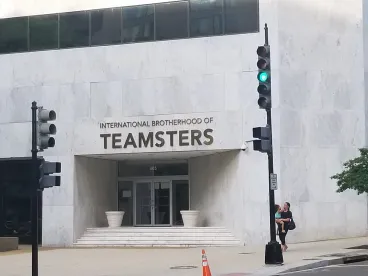In a continuation of the current National Labor Relations Board’s (“NLRB” or “Board”) reversal of recent precedent established by the NLRB under the prior administration, on August 29, 2022, the Board held that Tesla, Inc.’s (“Tesla”) dress code violated the National Labor Relations Act (“NLRA”) because employees were prevented from wearing shirts that supported their union.
Factual Background
The policy at issue required all employees to wear “the assigned team wear,” which could be substituted by all black clothing if approved by the supervisor and “[a]lternative clothing must be mutilation free, work appropriate and pose no safety risks (no zippers, yoga pants, hoodies with hood up, etc.).” During the Union’s organizing campaign in the spring off 2017, employees began wearing black cotton shirts that had a small logo with the Union’s campaign slogan – “Driving a Fair Future at Tesla” – with a logo of “UAW” on the back.
Prior to August 2017, employees regularly wore shirts that were not black or had logos and emblems unrelated to Tesla. However, in August 2017, Tesla began to strictly enforce its team-wear policy to ensure compliance, which included incidents where certain employees were told if they did not change their shirts to comply with the dress code, they would be sent home.
During the hearing, Tesla asserted that the team-wear policy was intended to aid in the “visual management” of the employees and to lower the risk of employees’ clothing causing mutilations to the vehicles. There was also testimony during the hearing from certain supervisors and employees, that they were not aware of black cotton shirts causing a mutilation to a vehicle.
Prior Precedent – Republic Aviation, Stabilus and Wal-Mart Stores, Inc.
Employees have the right under the NLRA to wear union insignia, and when an employer interferes with this right under Section 7 of the Act, the employer has the burden to show that its interference was justified by “special circumstances.” See Republic Aviation Corp. v. NLRB, 324 U.S. 793, 801–803 & fn. 7 (1945). In Stabilus, Inc., the Board stated that “[a]n employer cannot avoid the ‘special circumstances’ test simply by requiring its employees to wear uniforms or other designated clothing, thereby precluding the wearing of clothing bearing union insignia.” 355 NLRB 836, 838 (2010).
However, in Wal-Mart Stores, Inc., 368 NLRB No. 146 (2019) (which we reported on here), a divided Board held that the “special circumstances” test did not apply where instead of an employer banning all union buttons and insignia, an employer allowed certain buttons, but limited the size and/or appearance of union buttons and insignia that employees can wear. In those circumstances, the NLRB found that the Boeing test for facially-neutral rules applies instead. The impact of this ruling was that it made the employer’s prohibition presumptively valid, shifting the burden on the NLRB GC to prove otherwise.
The Board’s rationale in Wal-Mart was that by only limiting union insignia – not banning them outright – the impact on employees’ Section 7 rights was relatively slight. In that case, then Member (now Chairperson) McFerran dissented, and argued that the “special circumstances” test should remain in place for such a “core” right under the NLRA.
Majority Overturns Wal-Mart Stores, Inc. and Reaffirms Application of “Special Circumstances” Test
Chairperson McFerran, along with Members Prouty and Wilcox (with Members Kaplan and Ring dissenting), overturned Wal-Mart, and reaffirmed that the “special circumstances” test applies “[w]hen an employer interferes in any way with its employees’ right to display union insignia.” The Majority explained that NLRB precedent since Republic Aviation has consistently applied the “special circumstances” test where employees were prohibited from wearing an article of clothing bearing union insignia based on a policy requiring employees to wear certain clothing.
The Majority’s rationale in deciding to overturn Wal-Mart and reject the dissenting opinion can be summarized by the following excerpt:
“The decision in Wal-Mart shares a fundamental defect with the standard proposed by our dissenting colleagues today: it effectively treats the display of union insignia more as a privilege to be granted by the employer on the terms it chooses, rather than as an essential Section 7 right that—pursuant to federal labor law— the employer is required to accommodate absent a showing of special circumstances.”
The Board found that Tesla did not meet the “special circumstances” test. While a justification could be avoiding damage to the employer’s products, Tesla did not demonstrate a sufficient risk of vehicle mutilation. The Board found that the policy was also not narrowly tailored to address the claimed interest in “maintaining visual management, even assuming special circumstances could be established on that basis.”
Takeaways
The standard is now clear – under the present configuration of the Board, at least – that when employers intend to institute and enforce workplace dress codes that interfere with employees’ ability to wear union insignia in the workplace, the burden shifts to the employer to demonstrate “special circumstances” to substantiate its policy. The Tesla decision now removes a series of threshold questions that had to be answered as to whether the employer prohibition was a limit on the size/appearance of the insignia rather than a complete ban.
Pursuant to this well-established standard, the NLRB will closely scrutinize employers’ dress code policies – as it did in Tesla – if the policy interferes with employees’ exercise of their Section 7 rights to wear union insignia. Whether a “special circumstance” exists may vary by industry, company, job title, employee, etc., based on the particular needs present in each situation. Employers should now heed with caution and evaluate the facts of each situation in light of the policy has been previously enforced.





 />i
/>i

